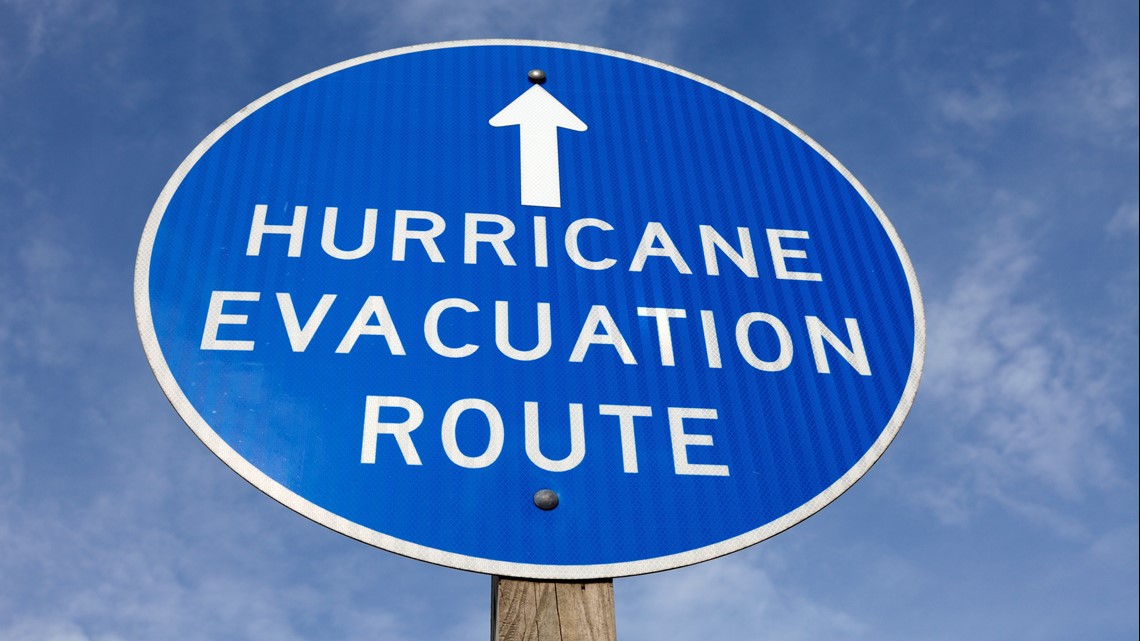The 2021 hurricane season recorded 21 named storms and seven hurricanes, including four considered “major” at category three and higher. Eight intense storms hit the U.S. coastline. The 2021 hurricane season, overall, was considered mild. However, the Veterans, families and communities negatively impacted by these storms would beg to differ, likely providing personal stories of loss and destruction.
Every year, the National Oceanic and Atmospheric Administration (NOAA) predicts what to expect for the upcoming hurricane season, and the 2022 hurricane season is no different. Whether the prediction is for a mild or active, solidifying and testing preparation plans and staying informed is everyone’s business, and “Being Prepared, Being Ready” is prudent.
The time to be prepared and be ready is now. Planning to protect the people and things you love as we enter hurricane season is essential. Do not try to prepare for a hurricane or any emergency when it happens or as an afterthought. Do it now!
Dangerous storms and hurricanes can lead to devastation, but there are ways you can prepare and mitigate damage to your home and remain safe during the storm.
These actions will help you and your family prepare:
- Find out if you live in a hurricane evacuation zone.
- Locate the nearest shelter if you need to leave your home.
- Review/update insurance policies.
- Build or replenish your emergency kit with hurricane supplies.
- Plan to protect your home.
- Create, be familiar and test your family plan.
- Stay informed with the latest local and national information.
Evacuation Plan
Find out if you live in a hurricane zone. Add the evacuation routes and shelter areas to your plan. Load evacuation routes and nearest shelter directions to your phone maps. If you live in a hurricane area, now is the time to know your way to shelters/safe areas and add to your plan to see where you would go and how you would get there. You do not need to travel hundreds of miles, but you do need multiple options.
Your destination could be a friend or relative who doesn’t live in an evacuation zone. If you live in a well-built home outside the evacuation zone, your safest place may be your home
Stay alert, listen, and move following the direction of your local authorities.
Be sure to account for your pets in your plan.
Keep in mind that you may need to adjust any evacuation plans based on the latest health and safety guidelines. Stay informed!
Don’t wait for emergencies/disasters to happen; build and test your preparedness plan and “go” kit.
Emergency resources
- FEMA Hurricane Preparedness.
- National Weather Service Hurricane Preparedness Page.
- Find Your Evacuation Zone.
- Assemble Your Supplies.
- Get an Insurance Check-up.
- Strengthen Your Home.
- Help Your Neighbor.
- Complete Your Plan.
Whether we have a mild or active 2022 hurricane season, protect you and your family by staying informed with local forecasts, having a preparedness plan, and heeding guidance from local emergency management officials.
Topics in this story
More Stories
Veteran Byron Potier weighed almost 300 pounds and was tired and lethargic. He was the perfect candidate for gastric sleeve surgery.
How much do you know about VA care, benefits and services? Don’t miss out on what you've earned—check out the "2025 VA Federal Benefits Guide for Veterans, Dependents, Survivors, and Caregivers" handbook to learn more.
Feeling stressed? Your breath can help you relax and focus. Take 3 minutes to reset and prioritize your well being for this week's #LiveWholeHealth practice.







http://www.hwn.org is the website of the Hurricane Watch Net, where anyone can subscribe to all advisories and bulletins from the National Hurricane Center at no cost whatsoever. Moments after such advisories are published by NOAA, one can receive them in their email. This network was created by me, in 1965.
Jerry Murphy, CECS, USN (Ret) K8YUW
Contact your local American Red Cross. Get information or better yet, volunteer as a Disaster Action Team member or in Shelter Management.